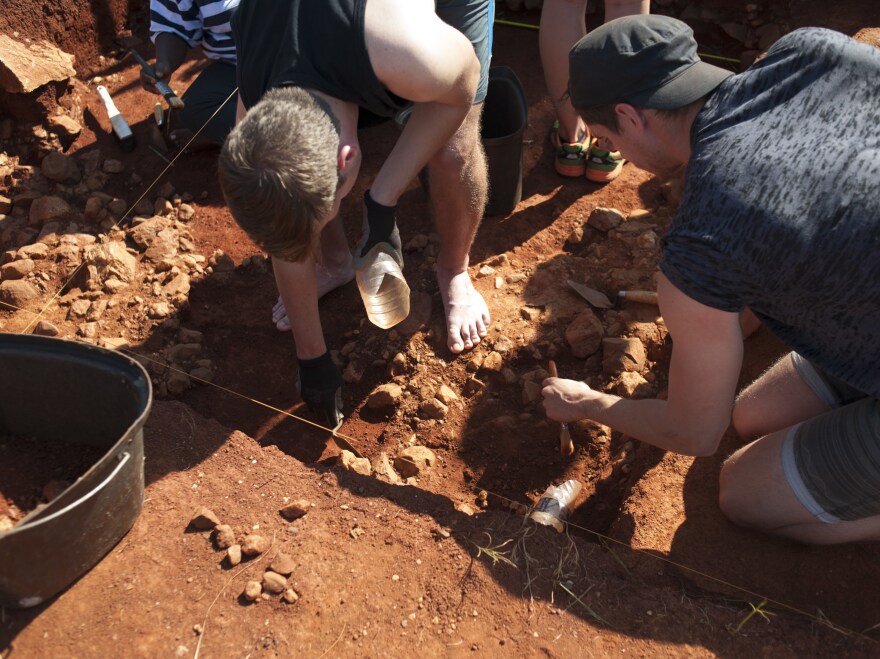A bone from a human ancestor that died between 1.8 million and 1.6 million years ago shows evidence of cancer, a newly published study finds. It is the oldest known example of a malignant tumor in a human ancestor.
The bone belonged to a hominin, an extinct relative of modern humans that lived and died in what is now South Africa. The foot bone, specifically the metatarsal that runs between the ankle and the pinky toe, was originally excavated between 1960 and 1980 from the Swartkrans cave, part of a World Heritage Site in South Africa called the Cradle of Humankind for its many hominin bones.
But a malignant tumor in the bone was not immediately apparent. A doctoral student in Florida originally examined the bone as part of an unpublished thesis and noticed the apparent tumor, but concluded it was just a kind of benign mass known as an osteoid osteoma.

It wasn't until two scientists at the Radiography and Tomography Section of the South African Nuclear Energy Corp. examined the bone with a high-resolution X-ray technique that the conclusion was re-evaluated, the researchers write in their paper published today. They scanned the bone in sections, and another team at the University of the Witwatersrand in Johannesburg assembled the images of those sections into a detailed 3-dimensional image.
In the 3-D cross section, it was clear the mass was not benign. It was a malignant cancer with an "irregular spongy woven bone texture with a cauliflower-like external appearance," the authors write.
As for what kind of bone cancer, exactly, this human ancestor suffered from, the researchers are not sure, but their best guess is that it was some variety of osteosarcoma. Today, the American Cancer Society says osteosarcoma is the most common type of cancer that develops in bones.
This tumor is far from the earliest example of cancer. Evidence of malignant tumors has been found in dinosaur bones. Many scientists believe tumors, which are the result of uncontrolled cell growth, have been around as long as multicellular organisms.
Nor is today's study alone in its finding that cancer is an ancient affliction, rather than a modern scourge caused by polluted environments and poor diets. Egyptian mummies have turned up evidence of prostate cancer from thousands of years ago. Another osteosarcoma appeared in the skull of a medieval man in what is now the Czech Republic.
The authors of the most recent study note in their study:
"Whilst most modern human malignancies are thought to be caused by environmental agents of a chemical nature, the evidence for this is not entirely conclusive.
...
"Whilst the explosion of malignancy incidence [today] is clearly correlated with the hazards of the modern world and increased life expectancy, primary bone tumors evidently occurred throughout history."
Copyright 2020 NPR. To see more, visit https://www.npr.org.



